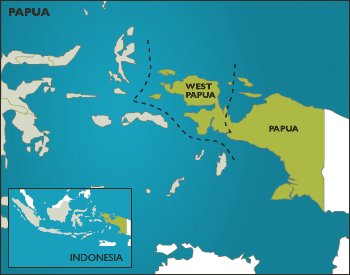Down to Earth No. 76-77 May 2008
New regulation means cheap forests for mining
A new government regulation on non-tax income from forest areas has caused outrage among NGOs by setting low prices for the use of forests by mining companies and other non-forestry sector users.
The regulation - PP 2/2008 - sets the rate for mining in protection forests from Rp 2,250,000 - Rp3 million (around US$240-320) per hectare per year. In production forests, the rate is Rp 1.8 million - 2.4 million (around US$192 - 255) per year.

